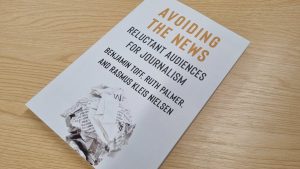The trouble with computers [The Economist]
“Although computers have become cheaper, more capable and more commonplace, they have made much less progress when it comes to ease of use. Their potential remains tantalisingly out of reach for people who find their control systems, or “user interfaces”, too complex. And even people who have no difficulty navigating menus, dialogue boxes and so on, might use computers more productively if their interfaces were better.”
The article, which quotes Adam Greenfield, author of “Everyware“, a book about the future of computing, Steven Kyffin, a senior researcher at Philips, Ken Wood, deputy director of Microsoft’s research laboratory in Cambridge, England, Patrick Brezillon of University Paris VI, Albrecht Schmidt, an HCI expert at the Bonn laboratory of the Fraunhofer Institute, Henry Holtzman, a researcher at the Massachusetts Institute of Technology, and Anind Dey, a researcher at Carnegie Mellon University’s HCI Institute, looks at various gesture-based interface systems, from the Sensitive Wall, developed by the Italian company iO (a spin-off of the natural interaction research group) to the Jeff Han’s “multi-touch†interface; and from the Microsoft Surface to the Apple iPhone.
However, there is more to make computers simpler to use:
“Smarter software is needed, too. For example, much effort is going into the development of “context aware” systems that hide unnecessary clutter and present options that are most likely to be relevant, depending on what the user is doing.
The trick, says Patrick Brezillon of University Paris VI, is to get computers to “size up the temperament of users” and then give them what they want. This can be done by analysing the frequency of keystrokes, the number of typos, the length of work breaks, internet-search terms and background noise, among other things.”
The article’s conclusion is perhaps the most important however:
“Many futurists and computer experts believe that the logical conclusion of all of these new input devices, sensors and smarter software to anticipate users’ needs, will be for computing to blend into the background. In this “ubiquitous computing” model, computers will no longer be things people use explicitly, any more than they “use” electricity when turning on a light or a radio. Mr Greenfield says a digital “dream world” that provides “one seamless experience of being immersed in information” hinges on one big if: computers and their interfaces must become so good that, like electricity, they rarely require concentrated attention. The trouble with computers in their current form is that they are still all too conspicuous.”





Hello,
I carried out a research project for my final year project which looked at the same thing as your subject title. I attach a link to it in case you may be interested to read it.
http://www.2shared.com/document/2SlOlvMs/What_leads_to_difficulties_in_.htm